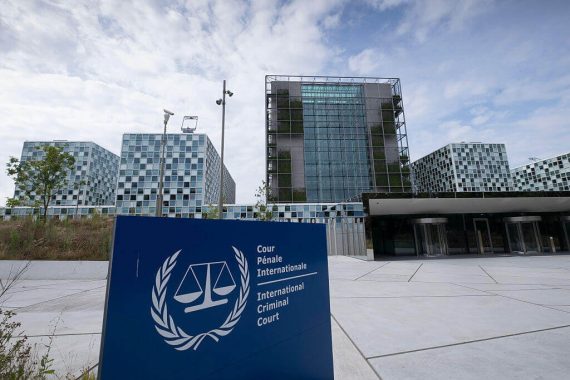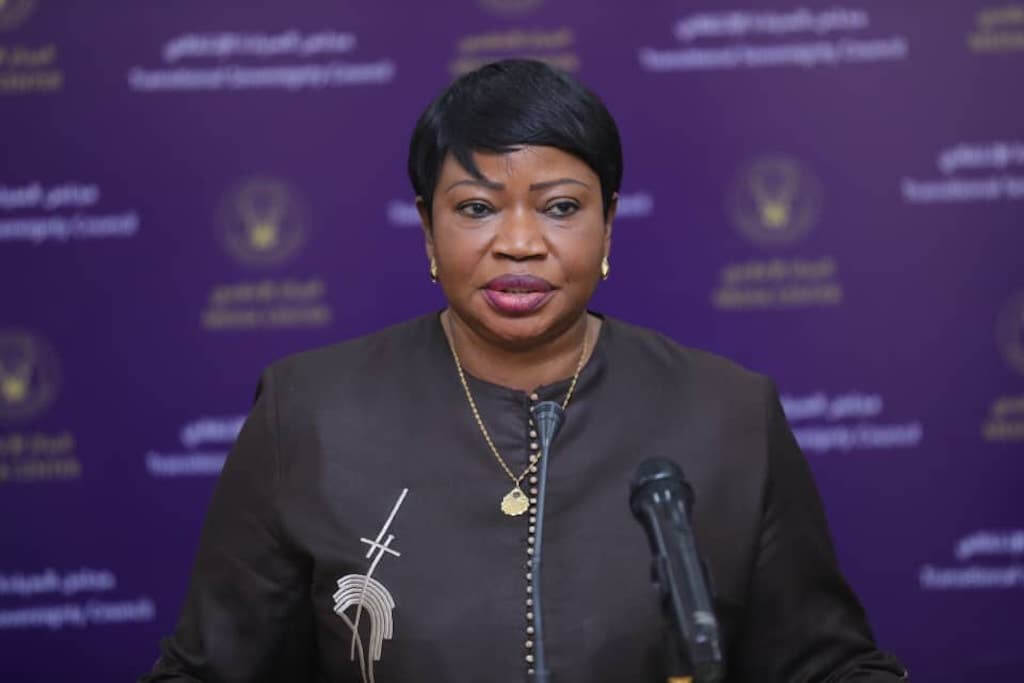The International Criminal Court is taking a visible role in dealing with war crimes, to the plaudits of victims, and to the horror of perpetrators. These initiatives have brought a nervous reaction in Washington, which has been trying to undermine the court ever since it was created. Two situations in particular are justifying to Washington the fears it has felt about the court all along.
The court’s prosecutor is beginning an investigation of the interrogations conducted by the U.S. Central Intelligence Agency at clandestine detention facilities popularly known as “black sites” it operated in various countries in the aftermath of the September 11, 2001 attacks in the United States. At the same time, the prosecutor is beginning an investigation that could lead to prosecution of officials of America’s ally Israel over Israel’s wars in Gaza and its civilian settlements in Palestine territory.
Both investigations have brought sharp rebukes from the White House. The Afghanistan investigation could reach to the highest levels of Washington officialdom of the 2002-2003 era. The interrogations conducted by the Central Intelligence Agency are universally acknowledged to have constituted torture.
Even former President Barack Obama has said that techniques like “water-boarding” are torture. And a committee of the United States Senate issued a report detailing the use of such techniques. So the prosecutor will not have a difficult time showing torture.
Torture is one of the acts defined to be a war crime in the court’s statute. And to the dismay of Washington, the International Criminal Court has jurisdiction to investigate, because some of the “black sites” happened to be in the territory of states that have signed up to the International Criminal Court. That gives the court jurisdiction to investigate.
That also highlights the main criticism the United States has of the court. The U.S. Government takes the position that the International Criminal Court should have jurisdiction only over persons who are nationals of states that sign up to the court, that is, unless the U.N. Security Council decides that a particular situation merits investigation.
The Security Council can refer a situation to the prosecutor for investigation. Of course, the United States has control over such referrals, because it wields a veto in the Security Council to stop any referral it opposes. And the United States has not signed up to the court, so the prosecutor doesn’t have jurisdiction over U.S. persons in that way.
However, the court does have jurisdiction if war crimes are committed in the territory of a state that has signed up, three states in which the Central Intelligence Agency operated “black sites” are among them: Poland, Lithuania, and Romania. In each of the three, the United States made an arrangement with the government to let it fly in persons detained in Afghanistan. In each of the three, the government let the Central Intelligence Agency have a facility it could use for interrogations. None of the sites were publicly disclosed.
The interrogation techniques were approved at the highest level of government in the United States. The International Criminal Court focuses on high-level officials who set policy for the commission of war crimes. So top officials from the 2002-2003 period could be in the prosecutor’s cross hairs.
When President Obama took office, he said that no one would be prosecuted for the interrogation practices, even though they constituted torture. That opens the way to prosecution at the International Criminal Court. If prosecutions occur in a particular country, the International Criminal Court backs off. But Obama’s refusal to prosecute means there is no obstacle to prosecution in the International Criminal Court.
The other situation that is causing consternation in Washington is an investigation of war crimes in Palestine territory that could lead to prosecution of top Israeli officials. Here too the jurisdictional rules are key. Palestine has signed up to the International Criminal Court.
That means that war crimes in its territory can be investigated. One of the acts that is defined by the court as a war crime is the transfer of civilians into settlements in territory under belligerent occupation. Israel does not disguise the fact that it promotes settlements in the West Bank territory of Palestine. The prosecutor has said that this action involves war crimes committed by Israeli officials.
Recommended
Within recent weeks, the Israeli government has warned many of its highest-level officials that they may be indicted by the International Criminal Court. The United States has already criticized the court over the Palestine investigation. That criticism came in February, when the court confirmed that the prosecutor may proceed with investigations.
These two investigations are far from the only ones now in process at the court. Myanmar officials, for example, may find themselves indicted for the treatment of members of Myanmar’s Rohingya population. But the International Criminal Court does not have jurisdiction everywhere. It does not have jurisdiction over war crimes committed in the territory of states that have not signed up to the court. For that reasons, the International Criminal Court has not become a truly international court. A number of major countries have stayed out of the court’s jurisdiction by refusing to join.
The fact that major states have declined to join feeds the criticism levelled by the United States that the International Criminal Court practices selective justice. But the selection is not made by the court’s prosecutor. It is made by the countries that decline to join. The only way the International Criminal Court can fully counter the criticism is if other states decide to join. Those states would, of course, be opening the possibility that their own officials could be prosecuted. And that is why they do not join.
The investigation of war crimes in Afghanistan and Palestine may lead some of these countries to re-consider and to join the court. The court’s prosecutor has not been overly vindictive. She has been careful to prosecute only where clear war crimes are committed.
Officials who stay on the right side of the law have nothing to fear from the International Criminal Court. On the contrary, prosecution of war crimes by the International Criminal Court raises the prospect of suppressing the atrocities that have been all too common in the international and civil wars of recent years.
One could list numerous examples of war crimes that have gone unpunished. The International Criminal Court aims less at those who commit war crimes at the tactical level than at those who occupy high military or civilian positions who set the policy that allows for war crimes at the tactical level. Universal acceptance by the countries of the world of the International Criminal Court would have a salutary effect.

VIDEO: Situation in Palestine: Statement of the ICC Prosecutor, Fatou Bensouda






